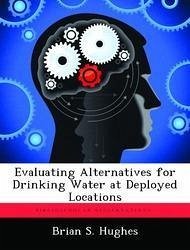Because of potential improvements to water security and cost savings, military decision makers may want to consider new means of providing potable water to Airmen in deployed locations. Drilling for water and field bottling show great potential because of the increased security and lower per unit cost when compared to bottled water from approved sources. However, the selection of the best means to supply water is a hard decision which must balance multiple objectives (e.g., security, palatability, and convenience) against limited resources (e.g., cost, airlift, trucks, and personnel). The Value Focused Thinking (VFT) methodology was used to create a multiobjective decision analysis model that quantifies a decision-maker's values regarding the many different means of providing potable water. Consisting of four fundamental values and seventeen measures, the model captures the Air Force's objectives, through a proxy decision-maker, regarding this decision. Using three different notional bases, the model was tested by evaluating five initial alternatives for each base. Sensitivity analysis was also conducted to provide additional insight into the tradeoffs and to generate potentially even better alternatives which were tailored to the specific location and decision-maker's objectives. Although results will certainly vary based on individual situations (e.g. temporary bases), the model shows that more of the decision-maker's values are met if water is supplied through the drilling of wells versus the continued reliance on commercial bottled water. More emphasis on drilling wells would not only potentially save hundreds of millions of dollars but would also provide a much safer water supply, thereby improving the chances for operational success.
Hinweis: Dieser Artikel kann nur an eine deutsche Lieferadresse ausgeliefert werden.
Hinweis: Dieser Artikel kann nur an eine deutsche Lieferadresse ausgeliefert werden.








